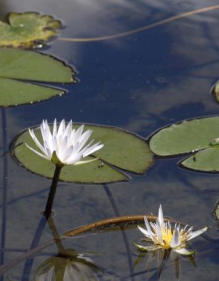
And now water licencing and fracking. We've seen the abuse of power, delays and market uncertainty caused by mining licencing, will this be more of the same? The multiple water licencing requirements will open up the opportunity for bribery or extortion in the fracking application process. And the auditor general discovered considerable fraud in local government managed water projects. How can the situation be improved to accommodate new fears?
Thirsty for reassurance
Dear Thirsty,
Water resource management has rightly concerned anti-corruption activists across the world for some time.
The possibility that the manner in which the process of water licensing for fracking purposes could become tainted by corruption is far from merely academic.
South Africa is a water stressed country. Water cannot be substituted, like for example, fossil fuel can be substituted with renewable energy. It scarcity therefore makes water a highly strategic resource. Despite major strides made since democracy in the equitable provision of water and sanitation to all South Africans, many poor people in both rural and urban areas still do not have access to the minimum standards of water and sanitation prescribed by the UN’s Millennium Development Goals.
Added to that, the current capacity of government to manage complex licensing regimes and supply chain management processes remains, at best, unproven, particularly when there will be an almost inevitable asymmetry of information between the private companies and government monitors.
And yet, despite all of that, there is at this stage no reason for despair.
The fact that this question is raised at all, in the public manner that it is, is an excellent start. We have an active civil society, demanding maximum transparency. We have a pro-active media that focuses on the real issues affecting development, and not just the good news.
Should fracking be approved we need to remind ourselves that that the process of managing a water licensing regime is qualitatively different than for example, building a new Gariep dam, or a new hydro-electric plant. Unlike a big publicly funded infrastructure project, where state resources are at play, should fracking proceed in South Africa, it will require the private sector to make the bulk of the investment. The state’s role is to manage the process, of which the management of the water licenses is a part. It means that the corruption risks to be managed are different in nature and scale.
As with any scarce resource, the allocation and pricing of the water to be used in fracking, will require the balancing of competing interests. Different stakeholders are already lobbying the process to influence the outcome of the policy process. Provided the lobbying is not corrupt, there is nothing inherently sinister about this.
However, while the National Water Act should allow all interested parties to make submissions on the granting of a water licence and then to appeal any decision to grant the licence to the Water Tribunal, the Minister does not open the decision for public objections. This practice makes it impossible to lodge formal objections, or to appeal, leaving only the option of reviewing the Minister’s decision not to open the decision for public objections. But that review is costly and time-consuming – making it difficult for NGOs or other interested parties to influence the decision-making process – and will often be unable to prevent damage to the environment, even if it is successful.
Once the licensing regime is finalised and established, there is no inherent reason why the Department of Water Affairs cannot manage the process effectively and efficiently. What is a required is a set of clear rules and procedures, a good deal of vigilance and as much transparency and participation as our constitution permits. There is much work to be done.
• This article was first published in Sunday Times: Business Times

